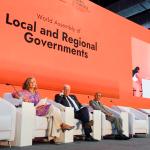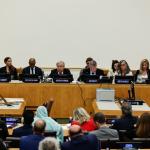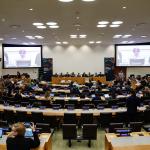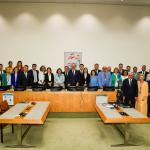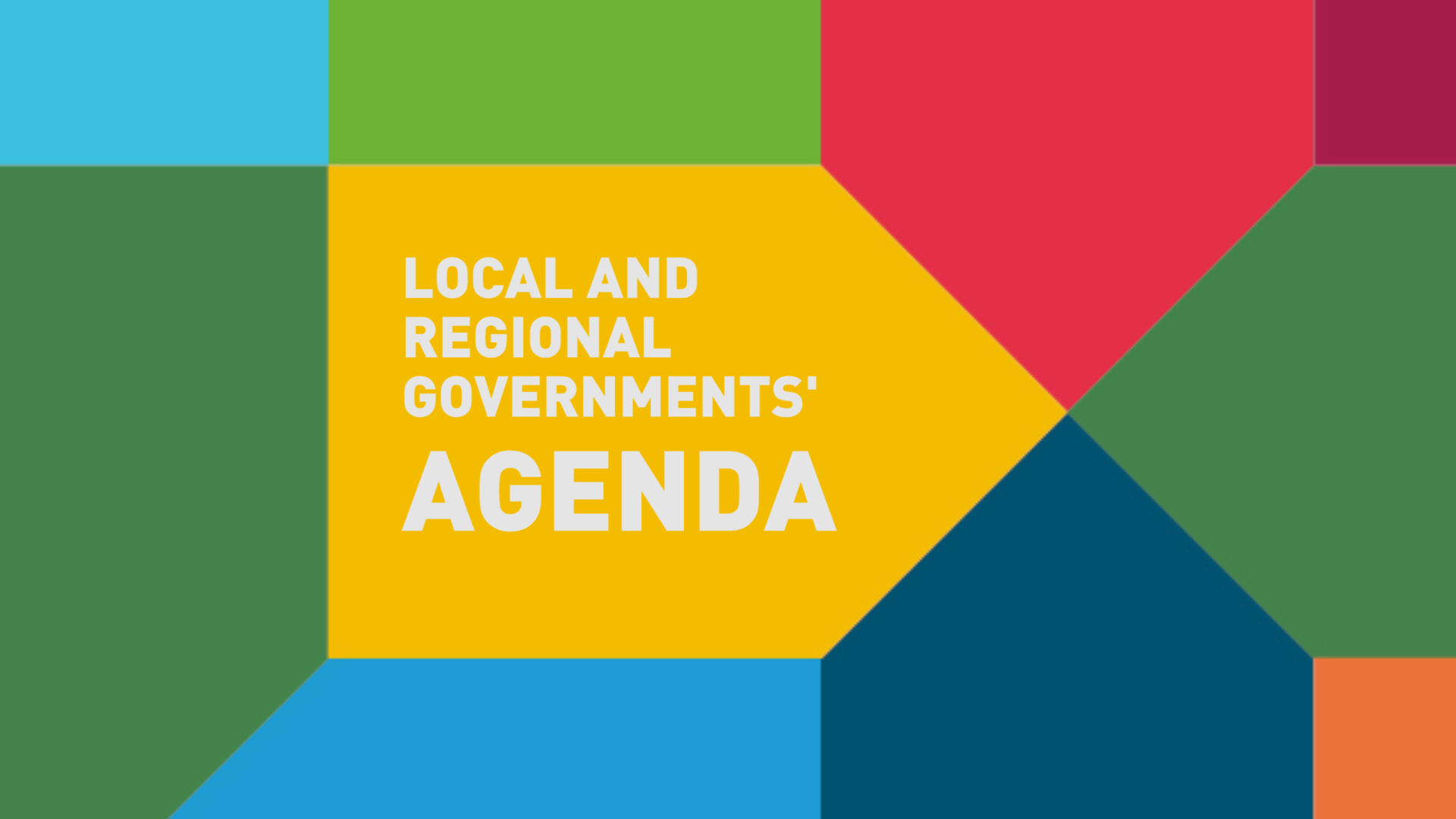
The 2020 High-Level Political Forum will assess the state of the achievement of the Sustainable Development Goals in the midst of the outbreak, allowing participants to reflect on how the international community can respond to the pandemic and set us back on track to achieve the SDGs and accelerate action.
The delegation of local and regional governments gathered at the HLPF will call for the importance of the 2030 Agenda as the framework that will allow to carry out the transformation that our communities need, and the SDGs as the pathway to build more resilient and equal societies.
The Third Local and Regional Governments’ Forum, co-organized by the Global Taskforce and UN-DESA, UN-Habitat, UNDP, and the Executive Office of the UN Secretary General, will aim at producing a fruitful debate and strong commitments from local and regional governments, national authorities and the international community to support a transformative bottom-up process grounded on multilevel governance based on the achievement of the SDGs in the aftermath of the COVID19 crisis.
Under the title “The Decade of Action - bolstering change from the ground-up”, the LRG Forum will debate the importance of basic service delivery, the need for a renewed multilevel territorial governance in the midst of the pandemic, and how to carry out a full collaboration among spheres of government to build back better after the outbreak taking into account that the transformative roadmap for local and regional governments remains the 2030 Agenda and its SDGs.
The Forum will provide an opportunity to illustrate the actions that local and regional governments are carrying out in the midst of the pandemic, and how they can act as catalysts for transformation, going beyond temporary solutions and building a long-term response through the framework of the SDGs.
The first panel will address that local and regional governments play in preventing and responding to crises by protecting and safeguarding the health and rights of citizens through the delivery of basic services that underpin the sanitary response (from health services to housing, to education and food security, and from water to waste management to mobility and digital policies).
The values of proximity and solidarity, which have been key during the pandemic, will guide local actions in the aftermath and will be critical to elements of the discussion of the second panel, which will see local leaders, representatives of national governments, and other stakeholders, debate on how to renew the current multilevel governance system in order to solve the challenges that we are facing.
Finally, the Forum will address how to finance the ambitious objectives that we set for ourselves, and how to ensure that local and regional governments are sufficiently funded, and have access to the resources necessary to recover from the current crisis and fulfill their role in the transformation towards more sustainable, equal, and resilient societies that leave no one and no place behind.
Under the title “Accelerating transformation from the ground-up in a post-Covid era”, the Local and Regional Governments’ Day will bring together the delegation of local and regional governments to discuss and agree on the constituency's Statement to the HLPF; define the priorities of the constituency for the post-COVID19 era, and present the fourth “Towards the localization of the SDGs” report. It will take place virtually.
The Local and Regional Governments Day will debate the political context in the aftermath of the pandemic and how, with the 2030 Agenda and the SDGs as a roadmap, local and regional governments strive to maintain basic service delivery as the backbone of delivering the Decade of Action. Strengthening and renewing the multilateral system, enhancing collaboration among spheres of governments, and involving all stakeholders in the recovery is critical to ensure a post-COVID world of solidarity that leaves no one behind.
The fourth "Towards the localization of the SDGs" report will be presented during the day. The Report builds on the previous reports’ knowledge on the state of localization, and has adapted to the current context by emphasizing the direct contribution of local and regional governments both to the SDGs and to the COVID-19 crisis.
The report also reviews the diversity and the breadth of local initiatives implemented by cities and territories to improve human wellbeing through the defense of human rights, public services and adequate housing, celebrating initiatives to reduce gender inequalities and protect cultural diversity. It underlines the myriad of local innovations to fight against climate change and protect our environment. It shows how local and regional governments can lead local economic development and contribute to addressing the current economic recession.
The final part of the session will be forward-looking and aim to showcase the future perspectives from local and regional governments. Among the highlights of the session we will see the presentation of the 2020 Rome Charter: Cultural participation for equity, justice, and human dignity, a document which advocates for the right to participate fully and freely in cultural life, as a vital element of our cities and communities.
Further information:
- Visit the site of the 2020 High-Level Political Forum
- Read the concept note of the third Local and Regional Governments Forum

